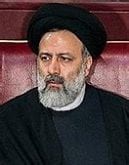Al-Monitor – Parliament Speaker Ali Larijani set off a media firestorm by announcing that Supreme Leader Ayatollah Ali Khamenei has called for “structural reforms,” leading to speculation about the future of the government.
During a trip to Qom Feb. 6, Larijani said, “The Supreme Leader instructed that within the next four months there will be structural reforms, which can possibly lead to budget reforms.” He added, “After the work of the budget in parliament is finished, this discussion can be pursued.” Islamic Republic of Iran Broadcasting published a video of this segment of Larijani’s comments, leaving no doubt as to what was said. Larijani continued, “Structural reforms will be to facilitate the work of the people.”
Larijani, who some believe has political ambitions beyond the parliament speakership, is a seasoned Iranian politician and aware of the ramifications of publicly discussing orders by the head of state for “structural reforms.” Even reforms within the budget could have a large impact in the aftermath of the disclosures of allocations for previously unaccountable state institutions, which have come under fire over the past year. While reforms would be popular with the public, certain entrenched forces and recipients of budget allocations would definitely push back against any changes. Perhaps more terrifying for these forces, reforms could ultimately lead to changes within the political structure of the country.
Given the widespread reactions to Larijani’s comments, conservative media outlets were quick to report on clarifications by other members of parliament. Parliament member Behrouz Nemati, spokesman for the parliament’s presiding board, said, “The intention of the speaker was more budgetary structural reforms in the country.”
Fars News Agency spoke Feb. 7 to Mohammad Ali Vakili, a member of parliament and its presiding board, who reiterated Nemati’s clarification. “Based on the discussions that took place previously within the presiding board, my understanding is that it means reforms within the budgetary system,” Vakili said. He continued, “Our budget is an accounting budget and not a planning budget. It is also a waste-costs budget and not a development budget.”
Vakili went on, “An important segment of the budget is not transparent.”
Making sure that discussion remains limited to economic reform and not reform of the power structure of the country, Amir Hussein Ghazizadeh Hashemi told Tasnim News Agency Feb. 7, “The instructions of the supreme leader are about structural reforms in the budget and not structural reforms in the country.”
Parliament member Mehdi Kiaee tweeted, “The parliament speaker’s comments … were about structural reforms in the budget planning system of the country and what was headlined mistakenly in the media as ‘structural reforms in the country’ is not accurate.”
After the clarifications, conservative Tasnim News Agency took the opportunity to gloat over Reformist media coverage, welcoming what they believed would be political structural reforms. Larijani’s comments made the front page of a number of Reformist newspapers. According to the Tasnim article, Shargh Daily interviewed parliament members and former officials to discuss “changes in the constitution” and other political moves. Etemaad Daily discussed potential changes in the administration and state budget in its coverage of Larijani’s comments. Sazandeghi asked what was on many observers’ minds: “Would structural reforms be limited to budgetary laws or will more important issues be taken up?”
 Shabtabnews In this dark night, I have lost my way – Arise from a corner, oh you the star of guidance.
Shabtabnews In this dark night, I have lost my way – Arise from a corner, oh you the star of guidance.


